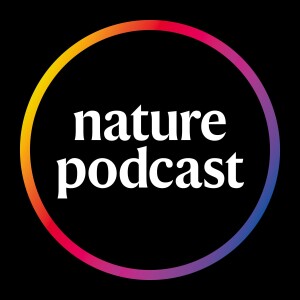
In this episode:
00:46 The mouse brain circuit controlling infanticidal behaviour
In mammals, infanticide is a relatively common behaviour, but not a default one. For example, virgin female mice will often kill young produced by other females, but this behaviour disappears when they become mothers themselves. To understand this switch, researchers have identified a brain circuit associated with infanticidal behaviour that gets switched off after mice give birth. They hope that by better understanding this circuit it could inform why animals engage in such behaviours.
Research article: Mei et al.
Research Briefing: A battle between neural circuits for infanticide and maternal-care behaviours
08:11 Research Highlights
The cyclone raging at the north pole of Uranus, and the ants that build landmarks to help them find their way home.
Research Highlight: A storm is whirling atop Uranus
Research Highlight: These hardy ants build their own landmarks in the desert
10:52 Getting to the source of fast solar wind
The sun produces streams of plasma called solar wind that stretch out and provide a protective bubble around the solar system. However, despite decades of study, there’s much that isn’t known about how the Sun makes it. Now, a team has used data from the Parker Solar Probe and shown that the source of one sort of wind, known as ‘fast solar wind’, appears to be due to colliding magnetic fields that produce the huge amount of energy needed to fire plasma away from the Sun.
Research article: Bale et al.
Research reveals system underlying behaviour change towards young17:50 Briefing ChatWe discuss some highlights from the Nature Briefing. This time the origins of patriarchal societies, and the tiling pattern that never repeats itself.
BBC Futures: How did patriarchy actually begin?
Nature News: This infinite tiling pattern could end a 60-year mathematical quest
Subscribe to Nature Briefing, an unmissable daily round-up of science news, opinion and analysis free in your inbox every weekday.
Hosted on Acast. See acast.com/privacy for more information.
More Episodes
Create your
podcast in
minutes
- Full-featured podcast site
- Unlimited storage and bandwidth
- Comprehensive podcast stats
- Distribute to Apple Podcasts, Spotify, and more
- Make money with your podcast
It is Free
- Privacy Policy
- Cookie Policy
- Terms of Use
- Consent Preferences
- Copyright © 2015-2024 Podbean.com




